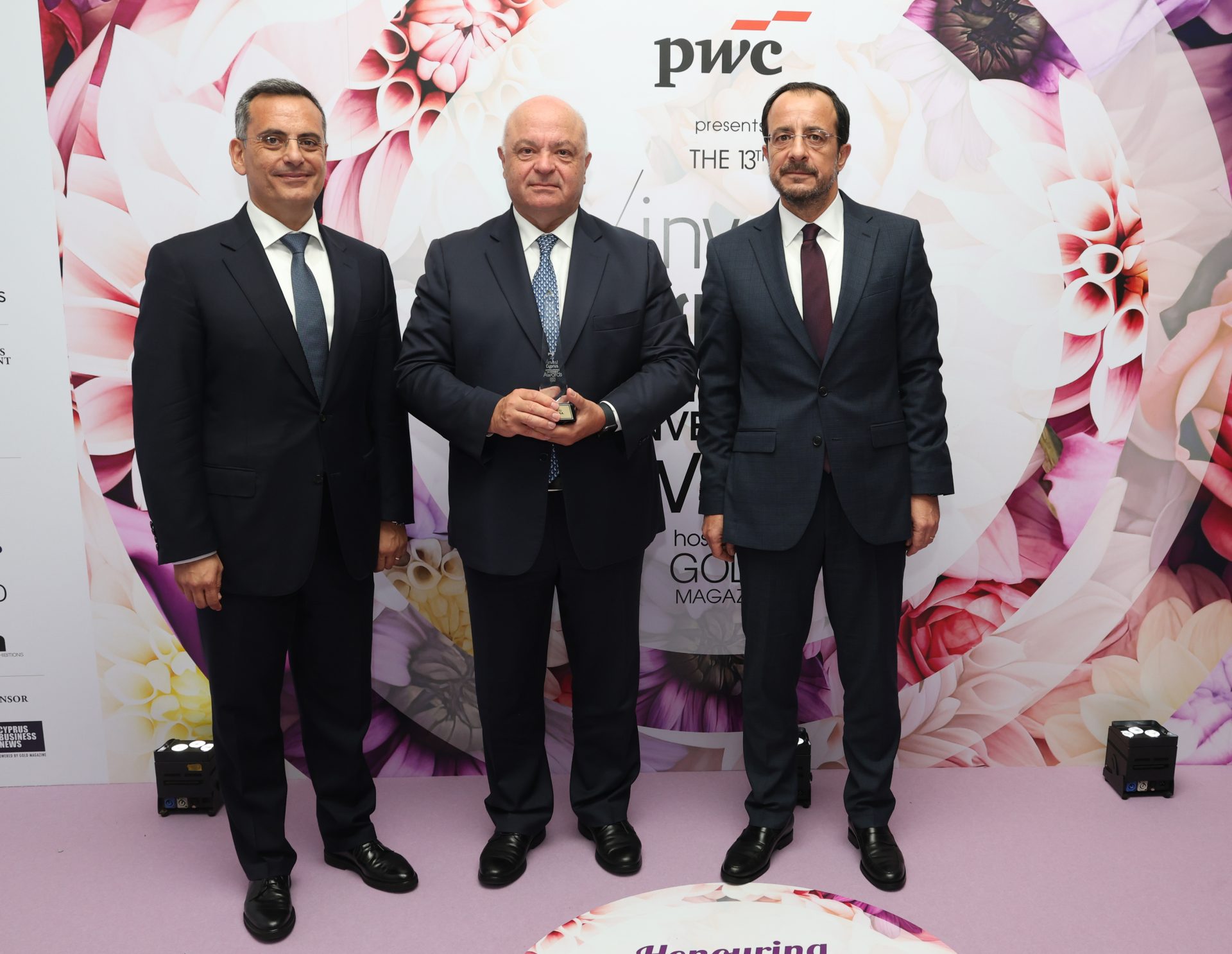President Nikos Christodoulides said on Wednesday that Cyprus is determined to build a modern, stable economy, telling foreign investors that reforms under way will make Cyprus more competitive and credible on the world stage.
Speaking at the 13th Invest Cyprus International Investment Awards in Nicosia, Christodoulides praised investors for choosing Cyprus and said they were partners in a plan to transform the country into a regional hub for business and innovation. The president acknowledged that the world faces economic and geopolitical uncertainty, but argued Cyprus is used to navigating complex conditions because of its location at the crossroads of the Eastern Mediterranean and the Middle East. He described Cyprus as a bridge between regions and said the country wants to play a bigger role as a pillar of stability and a reliable partner for both Europe and its neighbours. He said this vision will guide Cyprus when it takes over the rotating presidency of the European Union in January 2026.
Christodoulides pointed to the country’s economic resilience in recent years. He said Cyprus is expected to record economic growth of 3.4 per cent in 2024, with a fiscal surplus over four per cent of gross domestic product. He added that unemployment is at record low levels and public debt has dropped to 64 per cent of GDP. International credit agencies have restored Cyprus’ credit rating to A category, reflecting confidence in the country’s finances and its commitment to reforms.
The president stressed that the aim is not only to keep the economy stable but to modernise it for the future. He said reforms are being planned or already under way to strengthen institutions, improve how businesses interact with the state, and ensure that Cyprus’s financial and legal systems meet international standards. He announced that Cyprus will create a Single Supervisory Authority to oversee fiduciary and corporate service providers, aiming to close regulatory gaps and build trust in the business environment.
He also said Parliament is discussing a National Sanctions Implementation Unit, which will replace fragmented systems with one authority dedicated to applying European and international sanctions. The president described this as essential for protecting Cyprus’ reputation and the integrity of its economy. He said efforts are also focused on tax reform. The first major overhaul of the tax system in more than 20 years is planned to begin in January 2026, aiming to make compliance simpler and promote fairer taxation while keeping incentives for business and investment.
Cyprus is also updating its legal framework to support new types of financial activity and attract investors. The Funds Administration Law has come into force to help fund managers operate under clearer rules, while a new law for Limited Partnerships with separate legal personality is being drafted to offer investors more flexibility. Christodoulides said improving the investor experience is not only about laws but also about practical support. In May, the government launched the Cyprus Business Support Centre, a one-stop hub to speed up licensing and approvals for major projects.
He explained that this centre aims to reduce bureaucracy and improve coordination between government departments. A new strategic projects law has been introduced to simplify large-scale investment procedures, and the expansion of the gov.cy digital platform continues to improve access to public services for businesses and citizens.
The president said Cyprus is equally focused on raising its profile abroad. Over the past year, he led a roadshow in the United States, visiting New York, Houston and Silicon Valley to promote Cyprus as a reliable entry point into Europe and a regional base for technology and innovation. In June, he hosted India’s Prime Minister Narendra Modi in Cyprus. Both leaders co-chaired a business roundtable in Limassol and agreed to boost cooperation. Christodoulides said new investments from India are already starting and that Cyprus hopes to act as a bridge for Indian businesses looking to enter the European market.
He noted that Cyprus has long urged the European Union to invest more in the Eastern Mediterranean and the Middle East, arguing the region offers both challenges and great economic potential. He said the EU is now showing more interest, including efforts to strike free trade deals with Gulf Cooperation Council countries. Cyprus plans to focus its EU presidency in 2026 on producing practical results in EU-Gulf relations, especially in trade, investment, energy and education.
Attracting skilled people is also a priority for the government. Christodoulides said the “Minds in Cyprus” campaign aims to bring talented Cypriots back from abroad, tapping into their knowledge and networks to help build an economy based on innovation and research. In addition, Cyprus activated the EU Blue Card scheme this month, giving highly qualified professionals from outside the EU a faster route to work and live in the country.
The president said all these changes have one goal, to make Cyprus more competitive and credible, and to ensure growth lasts for the long term. He told investors that the government remains committed to working closely with them and removing obstacles that stand in the way of business. He thanked the international investment community for its trust and said Cyprus’ future is one of opportunity and ambition, with no limit to what can be achieved together.






Click here to change your cookie preferences